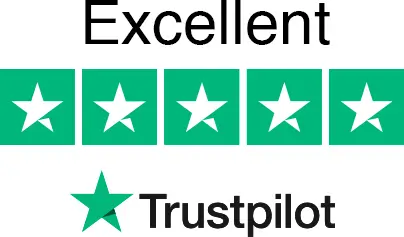Key Takeaways
- Dropshipping in the UK is legal if you follow strict UK ecommerce laws, including the Consumer Rights Act 2015 and GDPR for data protection.
- Using properly drafted legal documents—such as terms and conditions, privacy policies, and supplier agreements—safeguards your business and builds customer trust.
- Getting dropshipping legal documents wrong leads to disputes, fines, and contract issues that can damage your business.
- Key clauses on returns, refunds, intellectual property, and dispute resolution must appear in every UK dropshipping contract.
- Registering for VAT with HMRC and fulfilling tax duties is essential for dropshipping compliance in the UK.
- A dropshipping compliance checklist helps you cover every legal requirement and avoid expensive mistakes.
- Go-Legal AI provides free, lawyer-approved templates and checklists to ensure your UK dropshipping business is compliant from the outset.
- Protecting customer data and maintaining up-to-date privacy and cookie policies are crucial for satisfying GDPR requirements.
- Go-Legal AI is rated Excellent on Trustpilot with over 170 five-star reviews from users.
- Our platform automates dropshipping legal compliance in the UK, saving time and reducing risk as you scale your business.
How to Avoid Common Dropshipping Legal Risks in the UK
If you’re launching or scaling a dropshipping business in the UK, hidden legal risks can quickly derail growth or trigger costly problems. Many entrepreneurs overlook crucial documents, unclear website policies, or compliance gaps—resulting in customer complaints, Trading Standards investigations, or penalties from HMRC.
Understanding UK dropshipping law may seem daunting, but strong legal safeguards can be set up quickly and affordably. This guide covers every major dropshipping legal risk UK businesses face and provides a dropshipping compliance checklist and lawyer-approved templates to help you comply with the Consumer Rights Act, GDPR, and VAT rules from day one.
With up-to-date contracts, privacy policies, and supplier agreements, you can trade with confidence knowing your business is protected. Our AI-powered solution streamlines dropshipping compliance in the UK—download your free toolkit or try our step-by-step legal automation today.
Is Dropshipping Legal in the UK? Key Compliance Questions Answered
Dropshipping is legal in the UK, but several ecommerce laws strictly regulate the sector to protect consumers and business owners alike. You must comply with the Consumer Rights Act 2015, Consumer Contracts Regulations 2013, GDPR, and UK tax law. Critically, as a dropshipper, you are the “retailer” in law—meaning you are always accountable to customers, even if you never handle the stock or shipping.
Frequently asked dropshipping compliance questions include:
- Do I need to register as a sole trader or set up a limited company?
- What are my duties under the Consumer Rights Act and other consumer laws?
- Which website policies are essential for legal compliance?
- How do I handle customer data under GDPR?
- When must I register for VAT and how do I apply it?
Use our AI-powered template builder to instantly create compliant website terms and privacy policies for your UK dropshipping business—clear, plain English and no legal jargon.
What Are the Main Legal Risks for UK Dropshipping Businesses?
UK dropshipping businesses face several key legal risks that, if ignored, can have severe financial or reputational consequences. The biggest risks are:
- Consumer protection breaches: As the retailer, you are liable for all refunds, timing failures, and faulty products—even if your supplier is at fault. Ignoring these duties can lead to refund claims, Trading Standards investigations, or court action.
- Data protection failings: Any misuse or mishandling of customer information can trigger audits and fines from the ICO under the UK GDPR regime.
- Intellectual property violations: Using supplier photos, trademarks, or unlicensed content leaves you open to copyright disputes and compensatory claims.
- Supplier and fulfilment failures: When suppliers ship defective or late goods, customers pursue you, not the supplier.
- Tax and VAT mistakes: Failing to register for VAT or miscalculating tax obligations can attract unexpected penalties from HMRC.
- Misleading or non-compliant advertising: Unsubstantiated marketing claims or false delivery promises can violate UK trading regulations.
For extra protection, use our AI risk checking tool to scan supplier contracts and website policies for hidden risks—plug compliance gaps before problems arise.
Essential Legal Documents for Dropshipping in the UK (With Free Templates)
Dropshipping businesses in the UK require tailored legal documents to manage risk, satisfy regulators, and inspire trust with customers. The five essential contracts and policies are:
- Supplier Agreement: Clearly set out your arrangement with wholesalers, including delivery obligations, quality standards, returns, and liability for faulty or fake goods.
- Website Terms & Conditions: Define the rules for your customers, outline your selling policies, and protect your business with enforceable terms.
- Privacy Policy: A legal requirement—explains how you collect, use, and protect customer personal data (aligning with GDPR).
- Refund & Returns Policy: States the customer’s rights to return products or request refunds and how you will process them.
- Cookie Policy: Legally required if your website uses cookies; explains which cookies you use and why.
You can customise and download all of these contracts using our UK-specific, expert-reviewed legal templates—kept current as the law changes.
Dropshipping Compliance Checklist UK: Step-by-Step Legal Guide
To ensure legal compliance for your UK dropshipping business, work through the following checklist:
- Register your business: Choose sole trader or limited company status and register with HMRC or Companies House.
- Review VAT obligations: Register for VAT as soon as annual turnover approaches £85,000. Consider voluntary registration if you sell to VAT-registered buyers.
- Draft robust contracts: Use UK-law compliant supplier and customer agreements.
- Publish all website policies: Ensure privacy, cookies, and returns policies are accessible and clear.
- Check product legality: Ensure your offers aren’t restricted or infringing UK or EU intellectual property law.
- Achieve GDPR compliance: Audit how you collect, store, and process customer data, and update your policies accordingly.
- Maintain accurate records: Keep digital records for sales, expenses, VAT, and correspondence for HMRC audits.
- Provide business contact details: Clearly show your email, company address, and legal entity information on your site.
- Have a complaints process: Document how customers can complain and how you will resolve disputes.
Our guided templates walk you through every step. Use our automated checklist to ensure nothing’s missed when setting up your UK dropshipping business.
Key Clauses to Include in Your Dropshipping Contracts and Policies
Clear, thorough contracts are your first line of defence. Every UK dropshipping agreement should include these clause types:
| Clause/Component | What It Means | Why It’s Important |
|---|---|---|
| Returns & Refunds | Explains customer return processes and refund eligibility. | Protects your business and ensures legal compliance. |
| GDPR & Data Protection | Details how you handle personal data in line with the law. | Avoids ICO penalties and reassures customers. |
| Intellectual Property | Specifies who owns and may use images, brand names, etc. | Defends against IP disputes and takedowns. |
| Supplier Obligations | Sets standards for delivery, service, and product quality. | Makes suppliers accountable for failures or delays. |
| Dispute Resolution | Sets out how both parties resolve disagreements. | Prevents expensive lawsuits and speeds up settlements. |
| Payment Terms | Details when and how the supplier will be paid. | Helps maintain cash flow and avoids late payment issues. |
All these clauses are automatically included when you use our UK-tailored agreement builder, ensuring you’re fully protected with every contract.
How to Register for VAT and Meet HMRC Compliance in UK Dropshipping
VAT compliance is non-negotiable for UK dropshippers once your taxable turnover reaches £85,000 in any rolling 12-month period. To comply:
- Threshold monitoring: Track your sales turnover regularly—register as soon as you cross £85,000.
- Register via HMRC: Complete HMRC’s VAT registration process online.
- Apply correct VAT: Add the standard UK VAT rate (typically 20%) to eligible sales at checkout.
- Digital record keeping: Use Making Tax Digital (MTD)-compatible software for storing and reporting transactions.
- Quarterly VAT returns: Submit your VAT accounting online and pay on time to avoid penalties.
- Check overseas rules: If selling to EU customers, additional VAT or OSS (One Stop Shop) obligations may apply after Brexit.
- VAT display transparency: Always show your VAT number and VAT-inclusive prices clearly on your website.
Our VAT-ready templates and compliance checklists make it simple to stay on top of HMRC rules—set up proper invoicing and financial records with just a few clicks.
How to Make Your Dropshipping Website GDPR Compliant and Protect Customer Data
GDPR governs personal data handling in all UK dropshipping businesses. To fulfil your legal duties:
- Draft a transparent Privacy Policy: Disclose what personal data you collect, why, and how long you keep it.
- Honour data subject rights: Customers must easily access, rectify, or delete their data.
- Get explicit cookie consent: For tracking and marketing cookies, obtain informed permission before cookies set.
- Use secure channels: Protect all customer data with SSL encryption and secure platforms.
- Vet all third-party suppliers: Ensure any partners who handle your customer data, such as payment processors or fulfilment partners, are themselves GDPR compliant.
Our drafting tool lets you generate GDPR-compliant privacy and cookie policies for your site, with clauses matched specifically to your ecommerce stack.
Common Mistakes UK Dropshippers Make (And How to Avoid Them)
UK dropshippers often make avoidable legal errors which expose them to loss, fines, or business disruption. The most frequent pitfalls are:
- Using non-UK templates: US-style policies ignore the UK’s strict consumer and data protection laws.
- Working with unvetted suppliers: Fake or dangerous products lead to Trading Standards action—and you carry the liability.
- No returns or refund policies: This triggers customer complaints and negative reviews, undermining trust and risking compliance breaches.
- GDPR non-compliance: Collecting or storing personal data without proper consent or protections draws penalties.
- VAT neglect: Ignoring VAT rules results in missed deadlines, penalties, and even business closure.
- Withholding contact information: Failing to identify your business properly breaches disclosure rules.
For a full risk audit, upload your policies and contracts to our compliance review tool for instant, actionable feedback.
How Go-Legal AI Simplifies Dropshipping Legal Compliance
Go-Legal AI streamlines every aspect of legal compliance for UK dropshippers, providing:
- Immediate contract and policy creation: Build lawyer-approved supplier, privacy, cookie, refunds, and terms agreements in minutes, all tailored for UK ecommerce.
- A library of 5,000+ up-to-date templates: Find sector-specific documents and get automatic updates as legal requirements evolve.
- AI-powered risk assessments: Upload any contract to check for missing clauses, outdated terms, or risky language before you sign.
- Expert support at scale: Affordable legal automation and guidance ensures you stay ahead—even as your dropshipping business grows.
Automate complex legal tasks and get instant guidance—focus on growing your business and let our legal copilot handle UK compliance.
⚡ Get legal tasks done quickly
Create documents, follow step-by-step guides, and get instant support — all in one simple platform.
🧠 AI legal copilot
📄 5000+ templates
🔒 GDPR-compliant & secure
🏅 Backed by Innovate UK & Oxford
Frequently Asked Questions
What legal documents do I need for a UK dropshipping business?
You need Website Terms & Conditions, a Privacy Policy for GDPR compliance, a Refunds & Returns Policy, a Cookie Policy, and a supplier agreement. All should be drafted specifically for UK law.
How do I handle customer complaints or chargebacks as a dropshipper?
Respond to complaints quickly, provide prompt refunds or replacements as required, and keep detailed records. Ensure your supplier contract allows for returns or credits. For chargebacks, supply order details and delivery confirmations to your payment processor.
Do UK dropshipping sites need separate privacy and cookie policies?
Yes. The Privacy Policy addresses personal data processing under GDPR, while the Cookie Policy explains cookie use under PECR. Both are legally required.
What taxes and VAT rules apply to UK dropshipping businesses?
You must pay income tax (as a sole trader) or corporation tax (as a company) on profits. VAT registration is mandatory if annual turnover exceeds £85,000. Once registered, you must charge and remit VAT on eligible UK orders and file quarterly returns.
Can I use a generic supplier agreement for UK dropshipping?
No. UK dropshipping requires terms that reflect UK law on returns, supplier liability, dispute resolution, and data sharing. Generic or foreign templates are not sufficient.
What happens if I sell restricted or counterfeit products by mistake?
You are legally responsible as the retailer. Selling prohibited items leads to Trading Standards prosecution, payment processor bans, and civil or criminal claims.
How can I prove my terms and conditions are legally binding?
Your terms must appear prominently before customers complete their purchase (at checkout or in the website footer). Customers must be given a fair chance to review and accept them. Our platform helps you create and display them correctly for full enforceability.
What should I do if my supplier fails to deliver orders?
You must refund or replace the customer’s order, regardless of supplier performance. Pursue compensation from your supplier if your contract allows. Strengthen your supplier agreement to clarify these obligations.
Is insurance required for UK dropshipping businesses?
Not legally required, but product liability and public liability insurance is highly recommended. It protects you if a customer is harmed by a product you sold.
Where can I download free, compliant document templates for UK dropshipping?
Our platform offers free, fully customisable dropshipping contracts and policies designed for UK law. Download, edit, and implement them instantly for maximum protection.
Protect Your UK Dropshipping Business with Confidence
Running a dropshipping business in the UK requires more than just sourcing reliable products—it demands thorough legal compliance at every stage. Poorly drafted contracts or missing policies can result in lost revenue, Trading Standards action, or reputational damage. By understanding the laws governing dropshipping, using only UK-specific legal documents, and conducting regular compliance checks, you can trade successfully and deter costly mistakes.
With Go-Legal AI, you get immediate access to tailor-made UK dropshipping contracts, privacy policies, supplier agreements, and more. Start today for free and use our intelligent platform to generate, review, and manage your business’s legal documents with total confidence.










































